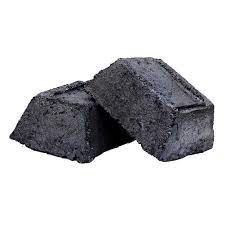Effective Management of Soderberg Electrodes in Aluminum Smelting
Aluminum smelting is a complex industrial process that relies on efficient and reliable electrodes for the production of high-quality aluminum. Soderberg electrodes, also known as self-baking electrodes, play a crucial role in this process. Proper management of Soderberg electrodes is essential to ensure optimal performance, cost-effectiveness, and environmental sustainability in aluminum smelting plants.
I. Understanding Soderberg Electrodes:
Soderberg electrodes are made of a mix of calcined petroleum coke, recycled anodes, and coal tar pitch. This unique composition allows them to be self-baking, eliminating the need for an external heat source during the smelting process. The electrodes gradually consume themselves during operation, making it crucial to manage their consumption rate and quality.
II. Monitoring Electrode Consumption:
Regular monitoring of electrode consumption is vital for effective management. Advanced sensors and monitoring systems can be employed to track the rate at which electrodes are being consumed. This data helps operators schedule timely replacements, preventing production disruptions and optimizing resource utilization.
III. Controlling Operating Parameters:
Optimal operating parameters are essential for extending the lifespan of Soderberg electrodes. Maintaining proper voltage, current, and temperature levels helps prevent premature wear and tear. Regular checks and adjustments of these parameters ensure a stable and efficient smelting process, reducing the overall cost of electrode maintenance.
IV. Quality Control and Inspection:
Quality control measures should be implemented throughout the manufacturing and installation process of Soderberg electrodes. Routine inspections help identify any defects or anomalies that could lead to reduced performance or safety hazards. Quality assurance programs, including non-destructive testing techniques, can be applied to ensure the integrity of the electrodes.
V. Environmental Considerations:
Soderberg electrodes are known for their environmental advantages due to the self-baking nature, reducing the need for additional energy sources. However, proper management should also address the responsible disposal of used electrodes. Recycling programs can be established to reclaim valuable materials and minimize the environmental impact of electrode waste.
VI. Employee Training and Safety:
A well-trained workforce is crucial for the effective management of Soderberg electrodes. Employees should be educated on the proper handling, installation, and maintenance procedures. Additionally, safety protocols must be strictly adhered to, minimizing the risk of accidents and ensuring a secure working environment.
In conclusion, the management of Soderberg electrodes in aluminum smelting is a multifaceted process that requires attention to various factors. By implementing monitoring systems, controlling operating parameters, ensuring quality control, considering environmental aspects, and prioritizing employee training and safety, aluminum smelting plants can maximize the efficiency and sustainability of their operations. Proper management of Soderberg electrodes not only enhances the economic viability of the smelting process but also contributes to a more environmentally friendly and safe industrial practice.





